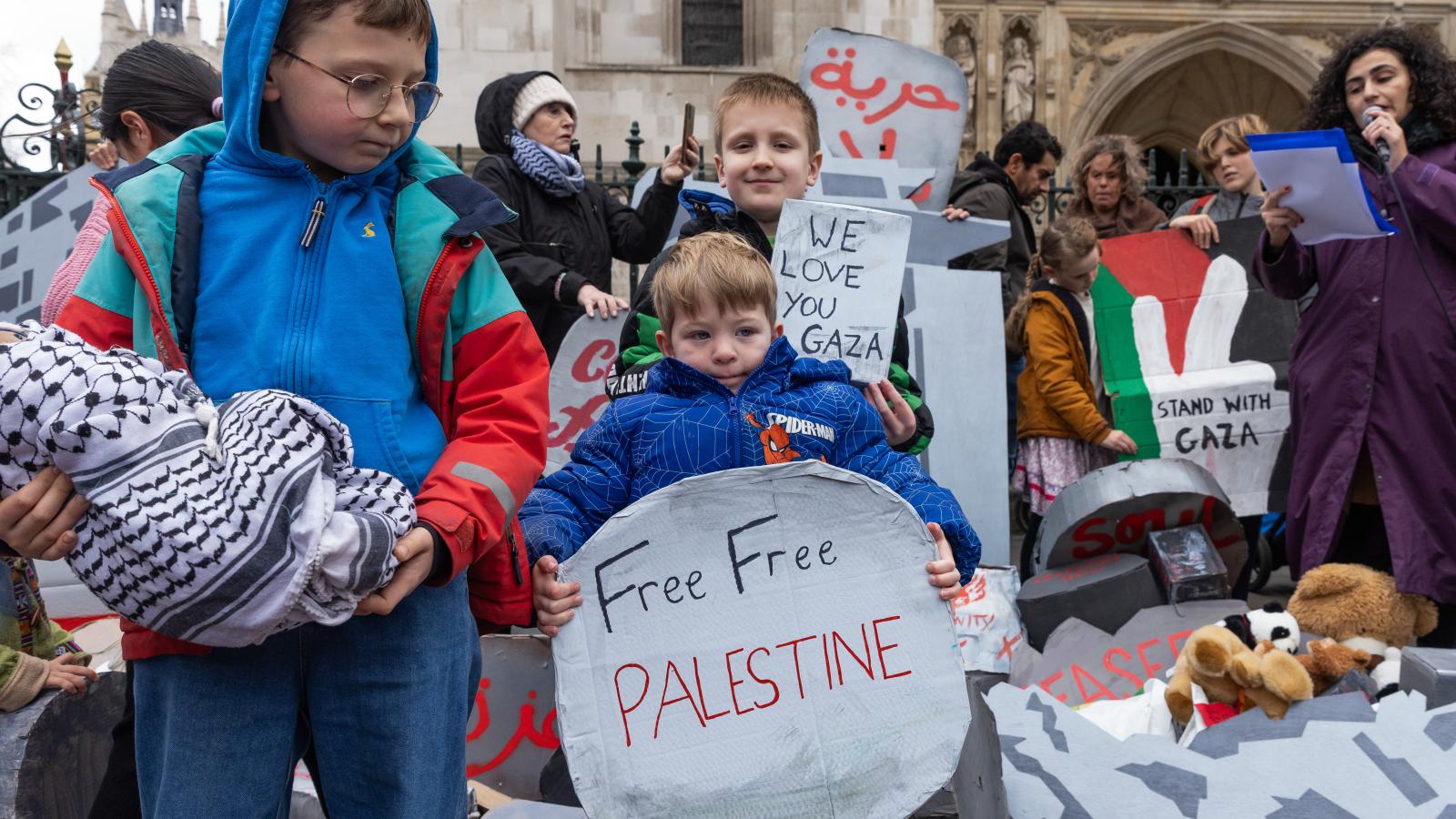Antisemitism in public K-12 schools spotlights activist teachers and radicalized students

Prominent acts of antisemitism at K-12 schools nationwide since the Oct. 7, 2023, attack on Israel are raising questions about what students may have been learning before the Hamas attack that could have sparked such a quick radicalization.
School "walkouts" with praises of Hamas, student shouts of "F*** the Jews," and teacher-led bullying of Jewish students have been reported at Berkeley Unified School District in California. On the other side of the country, the New York City Education Department has also been hit with massive walkouts and is facing a lawsuit from Jewish teachers who say they were subjected to severe, repetitive acts of antisemitism that were perpetrated by students and ignored by other faculty members. Meanwhile, Maryland's Montgomery County School District, which borders Washington, D.C., has been accused of repeatedly failing to punish antisemitic student behavior.
The Education Department's Office of Civil Rights opened investigations into the three school districts, all of which have large Jewish populations. School administrators from the districts spoke before the House Early Childhood, Elementary, and Secondary Education Subcommittee on Wednesday for a hearing titled, "Confronting Pervasive Antisemitism in K-12 Schools."
"It is impossibly hard to grasp how antisemitism has become such a dominant force in our K-12 schools. Some kids as young as second grade are spewing Nazi propaganda, which begs the question, who has positioned these young minds to attack the Jewish people?" Subcommittee Chair Aaron Bean, R-Fla., said in pre-prepared opening statements for the hearing.
A major issue is that teachers "are behaving as activists," Jay Greene, a senior research fellow at the Heritage Foundation Center for Education Policy, told Just the News. "They're whipping up students, they're organizing activities, they're leading protests. And that is contributing to some of the antisemitism we're seeing."
The other issue is that schools lack control over the teachers.
For example, New York City Public School Chancellor David Banks told the committee that he has 77,000 teachers in his district, and it can be difficult to discipline or terminate them when allegations arise.
"Rather than trying to increase the strength of the bureaucracy to control 77,000 teachers, which is impossible, we really need to empower parents to have more direct control over the education of their children so that they won't be taught radical values or be taught to hate," Greene said.
Meanwhile, California's "Ethnic Studies" curriculum is posing a "significant problem and is definitely exacerbating the antisemitism that we're seeing," said Greene.
While Berkeley Unified School District Superintendent Enikia Ford Morthel told the House that the ethnic studies requirement "is consistent with our proud legacy of free speech [and] advancing civil rights," per pre-prepared remarks, the curriculum has come under fire and even resulted in at least one lawsuit after children were allegedly instructed to pray to Aztec gods.
"Parents thought they were sending their kids to school to get an education, 'ABCs. One, two, threes.' And at some point, the schools started becoming factories for little activist social justice warriors," Tiffany Justice, co-founder of Moms for Liberty, told Just the News.
The issue is not about a need for more Holocaust education, Greene warned, since it risks backfiring and drawing inappropriate accusations that Jews are perpetrating a new Holocaust.
Both Justice and Greene agree that parental involvement is incredibly important for fighting hate.
"It's really about just getting parents more engaged in their civic process, more aware of what's happening politically in their local community, and then raising kids who, when teachers try to push ideologies on them, they say, 'No,'" Justice said.
Greene realizes that parents may need assistance in solving the problem of hatred and indoctrination.
"It's hard for parents to do this on their own," Greene said. "Religion is a great help to parents trying to raise their children, which is why even people who don't have deep faith find participating in organized religion can be helpful when raising children."
Looking toward the future, Justice said the focus should be on basic education and removing "activist teachers" from schools.
Parents have also been the driving force behind some of the out-of-school protests featuring children.
For example, since the Oct. 7 attack, children have marched in the street with banners supporting Palestine in multiple U.S. cities, including Los Angeles, Washington, D.C., and New York City. Most recently, in St. Louis over the weekend, small children carried a "Kids Say Free Palestine" banner, which was nearly bigger than many of them, as they chanted: "Hey, Hey! Ho, Ho! Zionism has got to go!"
However, Greene observed that many of these parents are either already the type of progressives who would have brought their children to protests, or foreign-born or illegal immigrants who are "bringing in the hostility towards Jews that's prevalent in their home countries."
Some of the widespread teacher activism was on display days after the Oct. 7 attack. Becky Pringle, president of the National Education Association, the largest teacher's union in the U.S., first condemned the Hamas attack on Oct. 11, but started accusing Israel of "disproportionate retaliation" and calling for a cease-fire by Oct. 16.
The association first released a statement on the attack on Oct. 17, which featured a quote from Pringle condemning former President Donald Trump and calling for education about antisemitism and Islamophobia.
By contrast, the American Federation of Teachers, the second-largest U.S. teachers' union, reacted a bit more quickly. The federation issued a statement condemning the attack and pledging support for the Israeli people on Oct. 9. By November 3, the group issued its first statement after the attack that addressed antisemitism, also pairing it with Islamophobia.
Both unions have been very vocal about politics in the past, and Justice sees the Middle East as the latest in a string of activism issues. "This anti-Israeli sentiment among far left progressives is really part of their anti-Americanism," Greene said about the demonstrators.
Many of the people participating in the protests are not educated about the Israel-Palestine conflict, Justice said. "The issue is always the revolution. We are in the middle of a western cultural revolution."
